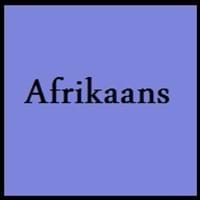Afrikaans vs Filipino
- Afrikaans Language is a mixture of English, Dutch, German, French and some South African language like Xhosa.
- Afrikaans Language lacks case and gender distinctions.
- "Filipino" was officially declared as national language by the constitution in 1987.
- "Filipino" is the official name of Tagalog, or synonym of it.
Afrikaans and Filipino Language History
Comparison of Afrikaans vs Filipino language history gives us differences between origin of Afrikaans and Filipino language. History of Afrikaans language states that this language originated in 17th Century whereas history of Filipino language states that this language originated in 16th Century. Family of the language also forms a part of history of that language. More on language families of these languages can be found out on Afrikaans and Filipino Language History.
Afrikaans and Filipino Greetings
People around the world use different languages to interact with each other. Even if we cannot communicate fluently in any language, it will always be beneficial to know about some of the common greetings or phrases from that language. This is where Afrikaans and Filipino greetings helps you to understand basic phrases in Afrikaans and Filipino language. Afrikaans word for "Hello" is hallo or Filipino word for "Thank You" is Salamat. Find more of such common Afrikaans Greetings and Filipino Greetings. These greetings will help you to be more confident when conversing with natives that speak these languages.
Afrikaans vs Filipino Difficulty
The Afrikaans vs Filipino difficulty level basically depends on the number of Afrikaans Alphabets and Filipino Alphabets. Also the number of vowels and consonants in the language plays an important role in deciding the difficulty level of that language. The important points to be considered when we compare Afrikaans and Filipino are the origin, speaking countries, language family, different greetings, speaking population of these languages. Want to know in Afrikaans and Filipino, which language is harder to learn? Time required to learn Afrikaans is 24 weeks while to learn Filipino time required is 44 weeks.





